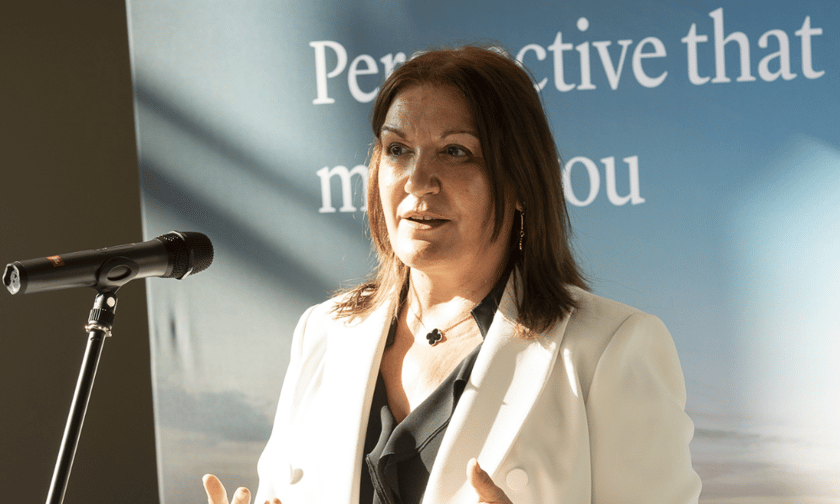

Parenthood has long been seen as a barrier to women’s career progression, often leading to reduced opportunities for advancement and, in the mid-term, a significant underrepresentation of women in senior leadership roles. Due to traditional gender stereotypes around caregiving, women often face significant challenges in balancing motherhood with their professional lives. Many experience slower career progression, reduced income, limited job mobility, the need to take part-time roles to manage caregiving responsibilities, and even discrimination. Outdated perceptions of women as sole caregivers and assumptions that mothers are less interested in pursuing promotions have significant ripple effects on the broader talent market, ultimately costing businesses valuable opportunities for growth and innovation.
Research has shown that women experience considerable career setbacks after taking maternity leave. According to the Institute for Fiscal Studies, the gender pay gap in the UK widens notably after women become mothers, with average earnings of 25% less per hour than their male counterparts ten years after childbirth. The rising cost of childcare further exacerbates the financial challenges of returning to work after parental leave, often forcing families to make difficult decisions about who should resume their career. These issues impact the gender pay and seniority gap as families face deciding whether to be a dual income household, with exorbitant childcare costs, or become a single income household with a full-time caregiver which often results in the mother stopping work.
Moreover, unconscious bias around parental leave and productivity may unintentionally foster inequality in hiring or considering women for career progression. This can also be seen more keenly in the 2023 Browne Jacobson report when the impact of mothers working from home was described as “shirking from home”. The perception of mothers working from home or in flexible hours as being less productive remains pervasive. Research shows that flexible working improve productivity and job satisfaction for mothers juggling careers and caregiving. A Stanford study found remote workers were 13% more productive, with better job satisfaction and reduced burnout. Supporting work-life balance reduces stress and unlocks potential, benefiting both employees and organisations. For businesses, sidelining talent due to caregiving responsibilities leads to missed opportunities for harnessing the full potential of their workforce. This not only weakens diversity in leadership, innovation, and performance but also results in broader losses for society as well as for women.
In Sweden, both parents are eligible for up to 480 days of paid parental leave, which can be shared equally. Where caregiving responsibilities are more evenly divided, the gender pay gap narrows, and both men and women can pursue their careers without sacrificing family life. This fosters a workplace culture where caregiving responsibilities are viewed with less of a gendered lens. When both parents are given the opportunity to take parental leave, it builds trust within an organisation and enables employees to make decisions that are right for their families without fear of negative career repercussions. It also has additional financial impacts, with Joeli Brearley, Founder of Pregnant Then Screwed, stating that a woman's earnings rise by 7% for every month of parental leave taken by her partner, demonstrating the tangible benefits of shared responsibility can enhance women's earning potential and contribute to long-term financial equality.
In the re/insurance industry, some organisations have embraced equal parental leave policies, recognising the importance of enabling both parents to become actively involved in their child’s care. This approach not only allows fathers to bond with their newborns but also offers valuable insights into the impact of young parenthood. When more fathers take time off, it fosters a culture of shared caregiving, which can positively influence workplace dynamics and improve understanding across teams.
If all of that wasn’t convincing, organisations that offer equal parental leave policies report better retention rates and increased employee satisfaction. A 2023 study from the Boston College Center for Work and Family found that organisations with supportive parental leave policies experience a 35% higher retention rate among parents. Additionally, equal parental leave has been linked to improved mental health and well-being for both parents, as it alleviates the pressures and stresses associated with caregiving and career demands which can only be positive for their approach to work.
At ISC Group, we understand that championing equal parental leave policies is essential in our mission to create a more equitable industry. By advocating for equal parental leave, we are challenging the outdated norms that limit professional growth based on gender and parenthood status. We believe that when men are equally encouraged to take on caregiving roles, it leads to a healthier, more balanced division of responsibilities at home and reduces the biases that hinder women’s career progression.
Equal parental leave is not just a policy change; it is a cultural shift that will drive meaningful progress towards a truly inclusive workplace.
